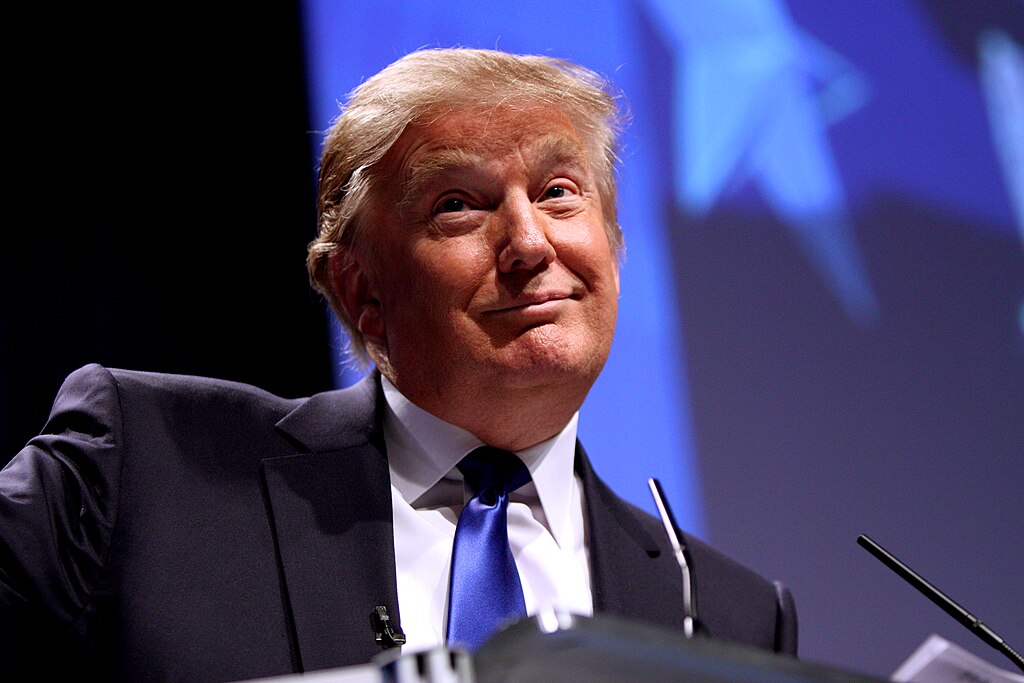President-elect Donald Trump’s plans for funding public libraries in 2025 are stirring nationwide debate. As libraries face increasing challenges in a digital age, Trump’s policy proposal seeks to restructure their funding mechanisms, favoring privatization and corporate partnerships over traditional federal support. This move, his administration argues, is aimed at making libraries more self-sufficient, but critics warn it could jeopardize access to public knowledge.
The proposal includes reduced federal grants, encouraging states and municipalities to form alliances with private companies to maintain and expand library services. Trump’s administration contends that this approach will lead to innovation, allowing libraries to incorporate modern technologies such as digital lending, maker spaces, and AI-driven educational tools.
“Libraries are the heart of community education,” an administration official stated. “But they need to adapt to modern challenges. By partnering with corporations, they can ensure long-term survival.”
Privatization and Tech Investments: Opportunity or Threat?
Central to Trump’s policy is a significant reduction in federal funding allocated through programs like the Library Services and Technology Act (LSTA). Instead, local governments would compete for private grants to fund infrastructure updates and technological innovations. This shift is intended to promote efficiency and reduce dependency on federal resources.
Under the proposal, tech companies like Amazon, Google, and Microsoft are expected to play a prominent role. These firms could provide funding, technology, and expertise to libraries, potentially transforming them into hubs for digital learning and innovation.
Critics, however, fear this approach might erode libraries’ public-serving ethos. By relying on corporate sponsors, libraries could face restrictions on the content they offer or be pressured to promote commercial interests over unbiased information access.
Additionally, opponents argue that underserved communities, which often rely most heavily on public libraries, might suffer under this model. Without robust federal support, smaller libraries may struggle to secure private partnerships, exacerbating educational inequities.
Netizens React to Trump’s Controversial Library Plans
The policy has sparked heated discussion online, with reactions highlighting both support and skepticism:
- @LibraryLover93: “Trump’s library funding cuts will hurt rural areas the most. Not everyone has access to corporate-backed resources!”
- @TechIsFuture: “Finally, someone is pushing libraries into the 21st century! Tech partnerships are long overdue.”
- @EqualAccessNow: “This policy is dangerous. Libraries should remain public spaces, not billboards for tech giants.”
- @DigitalLearner21: “Corporate sponsorship isn’t evil if it helps libraries survive. But transparency is key!”
- @SmallTownReader: “Our library is already underfunded. I doubt private companies care about small communities like mine.”
- @InfoEquality: “Public libraries are about access for all, not profit margins. This is a step in the wrong direction.”
Balancing Innovation with Accessibility
While Trump’s push for modernizing libraries reflects an understanding of their evolving role, critics point out significant risks. Many worry that privatization could compromise libraries’ mission to provide free and equitable access to information.
Experts suggest that instead of slashing federal funding, the administration should focus on hybrid models. Combining public funding with private innovation might ensure libraries can modernize without sacrificing accessibility or neutrality.



 India–U.S. Interim Trade Pact Cuts Auto Tariffs but Leaves Tesla Out
India–U.S. Interim Trade Pact Cuts Auto Tariffs but Leaves Tesla Out  Netanyahu to Meet Trump in Washington as Iran Nuclear Talks Intensify
Netanyahu to Meet Trump in Washington as Iran Nuclear Talks Intensify  Trump Lifts 25% Tariff on Indian Goods in Strategic U.S.–India Trade and Energy Deal
Trump Lifts 25% Tariff on Indian Goods in Strategic U.S.–India Trade and Energy Deal  Jack Lang Resigns as Head of Arab World Institute Amid Epstein Controversy
Jack Lang Resigns as Head of Arab World Institute Amid Epstein Controversy  Anutin’s Bhumjaithai Party Wins Thai Election, Signals Shift Toward Political Stability
Anutin’s Bhumjaithai Party Wins Thai Election, Signals Shift Toward Political Stability  Trump’s Inflation Claims Clash With Voters’ Cost-of-Living Reality
Trump’s Inflation Claims Clash With Voters’ Cost-of-Living Reality  Trump Signs “America First Arms Transfer Strategy” to Prioritize U.S. Weapons Sales
Trump Signs “America First Arms Transfer Strategy” to Prioritize U.S. Weapons Sales  Iran–U.S. Nuclear Talks in Oman Face Major Hurdles Amid Rising Regional Tensions
Iran–U.S. Nuclear Talks in Oman Face Major Hurdles Amid Rising Regional Tensions  Federal Judge Restores Funding for Gateway Rail Tunnel Project
Federal Judge Restores Funding for Gateway Rail Tunnel Project  Trump Signs Executive Order Threatening 25% Tariffs on Countries Trading With Iran
Trump Signs Executive Order Threatening 25% Tariffs on Countries Trading With Iran  Sydney Braces for Pro-Palestine Protests During Israeli President Isaac Herzog’s Visit
Sydney Braces for Pro-Palestine Protests During Israeli President Isaac Herzog’s Visit  Pentagon Ends Military Education Programs With Harvard University
Pentagon Ends Military Education Programs With Harvard University  Trump Says “Very Good Talks” Underway on Russia-Ukraine War as Peace Efforts Continue
Trump Says “Very Good Talks” Underway on Russia-Ukraine War as Peace Efforts Continue  U.S. Lawmakers to Review Unredacted Jeffrey Epstein DOJ Files Starting Monday
U.S. Lawmakers to Review Unredacted Jeffrey Epstein DOJ Files Starting Monday  Nicaragua Ends Visa-Free Entry for Cubans, Disrupting Key Migration Route to the U.S.
Nicaragua Ends Visa-Free Entry for Cubans, Disrupting Key Migration Route to the U.S.  Bosnian Serb Presidential Rerun Confirms Victory for Dodik Ally Amid Allegations of Irregularities
Bosnian Serb Presidential Rerun Confirms Victory for Dodik Ally Amid Allegations of Irregularities  TrumpRx.gov Highlights GLP-1 Drug Discounts but Offers Limited Savings for Most Americans
TrumpRx.gov Highlights GLP-1 Drug Discounts but Offers Limited Savings for Most Americans 
































